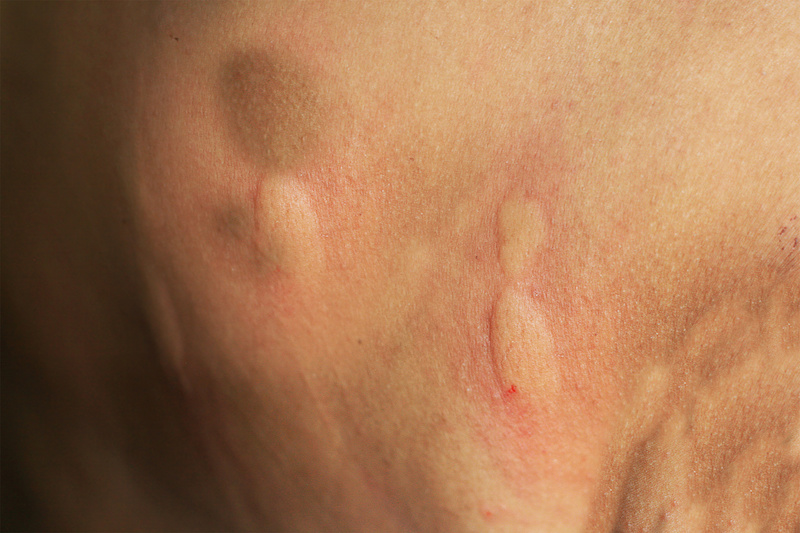Ticks are tiny pests that pack a big punch, thanks to the diseases they can spread. Whether hiking through the woods or simply spending time in your backyard, using natural bug repellent for ticks can be appealing.
But while these options can help reduce your risk of bites, they’re not always foolproof. Let’s dive into how natural repellents work, their limitations, and why professional pest control might be your best ally in keeping ticks at bay.
Types of Natural Bug Repellents for Ticks

Natural remedies can be a handy first line of defense against ticks. They’re simple, accessible, and a great way to minimize exposure to store-bought chemicals. While they can help in the short term, it’s important to remember that these options won’t eliminate ticks from your yard. Here’s a closer look at some popular natural tick repellents and how they work:
Essential Oils
Essential oils like cedarwood, eucalyptus, lavender, and peppermint have strong, tick-repelling scents. You can create a DIY spray by mixing a few drops with water or carrier oil. Spritz it on your skin, clothing, or even around your home’s entry points. The downside? You’ll need to reapply often, and these oils won’t touch the ticks hiding in your yard.
Garlic Sprays
Garlic isn’t just a kitchen staple; it’s also a natural pest repellent. Garlic sprays can be applied to your lawn and garden to help keep ticks and other bugs away. The pungent smell drives them off, though you’ll need to reapply regularly to keep it effective. While it’s a solid option for outdoor areas, it’s not a permanent solution.
Apple Cider Vinegar
Apple cider vinegar is another easy, natural remedy. A quick mix of vinegar and water can be sprayed on your skin or clothes to help deter ticks during outdoor activities. Some pet owners also add a small amount to their pet’s water to make them less appealing to ticks. Just be sure to check with your vet before trying it with your furry friends.
Neem Oil
Neem oil, derived from the neem tree, works as both a deterrent and a disruptor of the tick life cycle. Use it diluted on your skin or as a spray for outdoor areas. While neem oil is effective when used consistently, it’s just one piece of the puzzle in tick control.
Tick-Repelling Plants
Why not let your garden do some of the work? Certain plants like lavender, rosemary, and lemongrass naturally repel ticks thanks to their scent. Adding these to your landscaping can create a protective barrier around your yard.
What Makes Natural Repellents Work?

Natural bug repellents for ticks typically rely on strong-smelling essential oils like cedarwood, citronella, or lemon eucalyptus to disrupt a tick’s ability to sense its next host. Ticks use heat, carbon dioxide, and natural body odors to locate prey, and these repellents mask those signals, making it harder for ticks to lock onto their target.
The appeal of these repellents lies in their simplicity. Most are plant-based, easy to apply, and generally considered safe for both people and pets. Many people feel more comfortable using natural products, especially if they’re looking to avoid synthetic chemicals like DEET or permethrin.
However, the effectiveness of natural bug repellents for ticks depends on several factors. Essential oil-based sprays, for example, must be reapplied frequently, sometimes every one to two hours, to remain effective. And while they may work well for short-term outings, they’re not designed to address the bigger problem: ticks living and breeding in your outdoor spaces.
Ticks thrive in specific environments, and if your yard offers the right conditions, these pests will keep coming back. Areas with overgrown grass, dense vegetation, or shady, damp spots are prime real estate for ticks. Add in a steady food supply from small animals like rodents, and you’ve got an ideal habitat for a tick population to grow.
Even the best natural repellents won’t stop ticks from making your yard their home. That’s where a more comprehensive approach, like professional pest control, becomes essential.
Dangers of Tick Infestations

These tiny pests are known carriers of diseases like Lyme disease, anaplasmosis, and babesiosis. The most common malady, Lyme disease, can cause symptoms like fatigue, joint pain, and even long-term neurological complications.
Anaplasmosis and babesiosis may not be as familiar but are just as concerning. Symptoms include fever, muscle aches, and severe health risks for people with weakened immune systems.
What makes ticks particularly tricky is how easy it is to miss them. Their bites are painless, which means they can latch onto a host for hours or even days without being noticed. By the time you spot one, the potential for disease transmission is already high.
Ticks don’t just target people; they can also affect pets. Dogs and cats are especially vulnerable, and they can bring ticks into your home, putting everyone at risk. Pets can suffer from illnesses like ehrlichiosis and Rocky Mountain spotted fever, which can seriously impact their health.
Overgrown grass, leaf piles, and shaded areas around your yard are perfect for them. They often hitch a ride into your space on wildlife like deer, squirrels, and mice.
Once ticks settle into a yard, their population can grow fast. A single female tick can lay thousands of eggs, which mature into larvae, nymphs, and eventually more adult ticks. A small tick issue can quickly spiral into a full-blown infestation without intervention.
While natural bug repellents for ticks might keep them off your skin for a while, they don’t tackle the core problem. If ticks are living and breeding in your yard, repellent is only a short-term fix.
Protect Your Home and Health
Ticks aren’t just an annoyance; they’re a serious health risk. While natural bug repellents for ticks can provide temporary peace of mind, they fall short when it comes to long-term protection. Professional pest control offers a more comprehensive solution, targeting the root of the problem and preventing ticks from turning your yard into their breeding ground.
For expert tick control, contact the experts here at proof. Pest Control!

